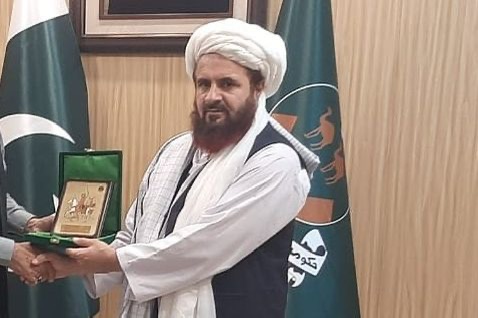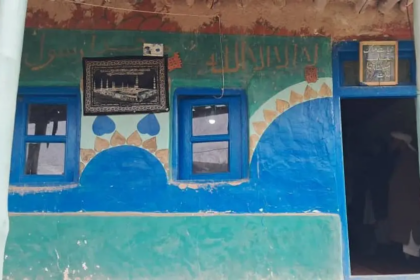RASC News Agency: The Taliban’s Ministry of Foreign Affairs has officially appointed Mawlawi Gul Hassan as the group’s new ambassador to the Russian Federation, marking a significant yet deeply contentious development in the international recognition of the regime. According to the Taliban-controlled embassy in Moscow, Mawlawi Gul Hassan is set to travel to Russia upon receipt of an official visa, where he will assume full control of the Taliban’s diplomatic mission in the Russian capital. Mawlawi Gul Hassan, a former member of the notorious Quetta Shura the Taliban’s clandestine leadership council operating from Pakistan now steps into one of the region’s most geopolitically pivotal posts. His appointment signals the Taliban’s strategic efforts to consolidate diplomatic legitimacy and strengthen ties with a key regional power, despite their internationally condemned governance marked by widespread repression and ongoing human rights violations.
Last week, Dmitry Zhirnov, Russia’s ambassador to Kabul, formally handed over the agreement recognizing Mawlawi Gul Hassan’s appointment to Amir Khan Muttaqi, the Taliban’s foreign minister. This unprecedented diplomatic exchange illustrates Moscow’s readiness to deepen engagement with the Taliban, effectively endorsing a regime notorious for its brutal suppression of women, minorities, and political dissenters. Russia’s decision to remove the Taliban from its list of banned terrorist organizations and subsequently accept the appointment of a Taliban envoy reflects a pragmatic but highly controversial recalibration of its foreign policy in Afghanistan. Moscow has also transferred the official Afghanistan’s embassy building in Moscow to Taliban control a symbolic and practical step toward the de facto recognition of the Taliban regime on the world stage.
These diplomatic overtures occur amid Russia’s heightened security concerns about Afghanistan, particularly regarding potential NATO and U.S. military re-engagement. Russian Foreign Minister Sergey Lavrov has repeatedly warned that NATO is actively exploring ways to re-establish a foothold in Afghanistan, a development Moscow views as a direct threat to its national security and regional stability. Simultaneously, Moscow has long expressed serious alarm about the presence of various extremist groups within Afghanistan, most notably ISIS-Khorasan, whose transnational terrorist activities pose a persistent danger to Russia’s southern borders. Russia’s deepening diplomatic relations with the Taliban are largely driven by a strategic calculus aimed at managing and containing these security threats, though such engagement comes at a high ethical and geopolitical cost.
By legitimizing the Taliban through diplomatic channels, Russia is complicit in emboldening a regime responsible for the systematic erosion of civil liberties, the brutal oppression of women and ethnic minorities, and the harboring of terrorist networks. This rapprochement not only undermines international efforts to promote human rights and counter-terrorism but also risks further destabilizing a region already plagued by conflict and uncertainty. In sum, the appointment of Mawlawi Gul Hassan as the Taliban’s ambassador to Russia is more than a mere diplomatic formality; it represents a troubling normalization of a regime whose record of violence, repression, and ideological extremism threatens regional peace and security. As Moscow moves forward with this controversial partnership, the global community faces difficult questions about accountability, moral responsibility, and the future of Afghanistan’s fraught political landscape.






